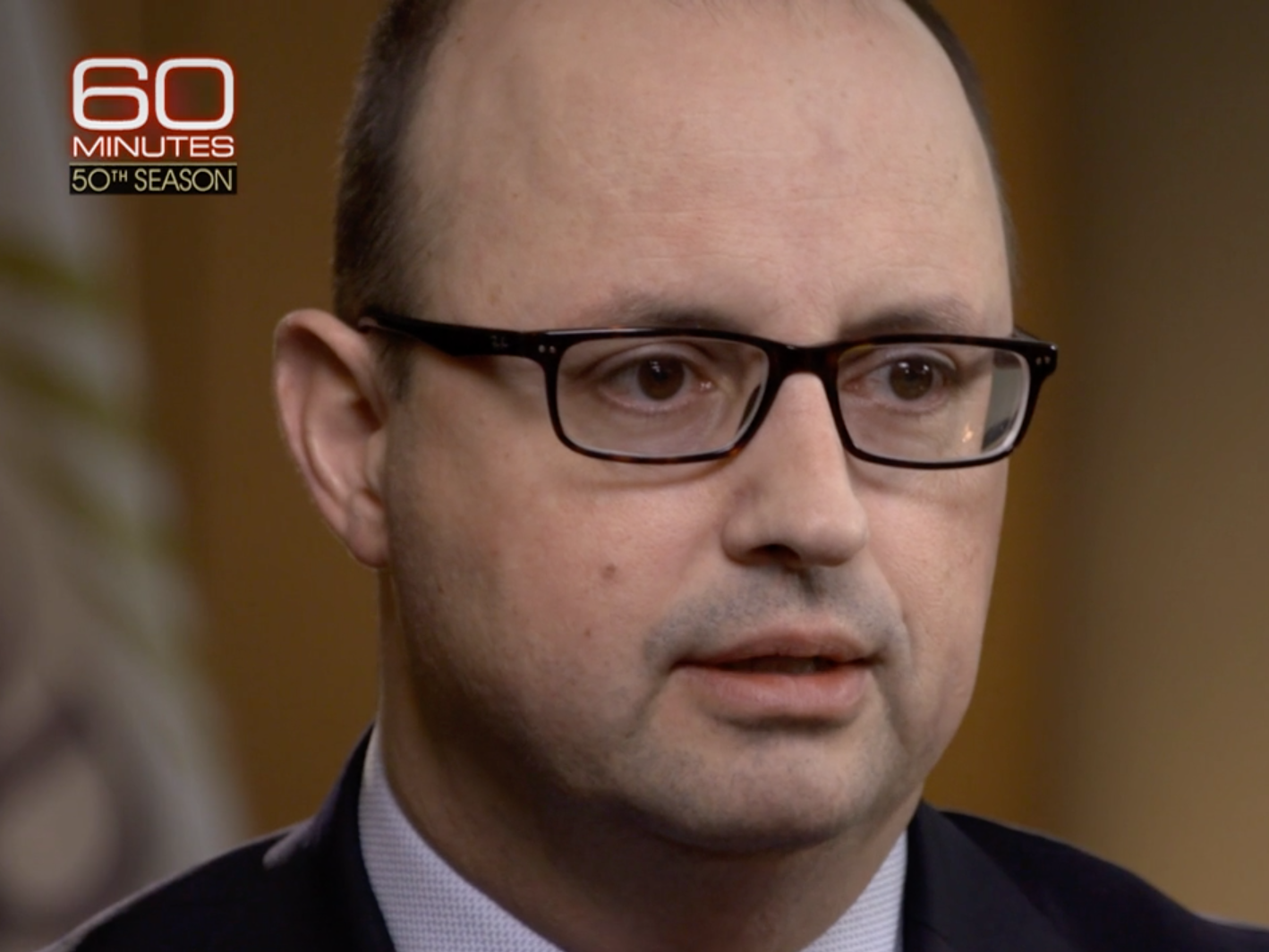- Rockford, Illinois, a city 90 miles from Chicago, found that just two babies on Rockford’s health insurance were eating up 2.5% of the plan’s total budget.
- The medication used by these babies was being used to stop infantile spasms, which is serious but easy to treat. The problem was that the drug ended up costing close to half a million dollars for nine vials.
- The city sued the drug’s maker in 2017, along with some pharmaceutical middlemen that the city alleges didn’t do enough to negotiate lower prices.
The city of Rockford, Illinois runs its own health plan for its hundreds of police, firefighters, and other city workers.
And a couple of years ago city officials watching the books noticed something weird about its healthcare spending.
Two babies on Rockford’s health insurance were eating up 2.5% of the plan’s total budget. That money wasn’t going for heroic surgeries or cancer treatment. Instead, the infants were being given a drug to stop infantile spasms, which is serious but easy to treat.
The problem was just nine vials of H.P. Achtar, the drug the children needed, cost the city nearly a half-million dollars. The drug isn’t new. It’s been around decades and used to cost just $40 a dose. But the drug’s owner hiked it up to $36,000 in recent years.
"The budget was out of control," Former Rockford Mayor Larry Morrissey told CBS's "60 Minutes" on Sunday.
So last year, the city of 150,000 decided to do something almost unheard of. It sued.
In 2017, the City of Rockford filed a lawsuit against Mallinckrodt, the makers of H.P. Acthar, "to challenge an anti-competitive, unfair and deceptive scheme" that the company undertook "to enhance and maintain Mallinckrodt's monopoly power" that violated US antitrust laws. Rockford also sued Express Scripts, the company tasked with negotiating prescription drug prices for the city.
"They didn't use their buying power. They didn't use their clout," Rockford's lawyer Don Haviland told "60 Minutes. "Their job was to go out and negotiate a lower price from the manufacturer. They didn't do it."
Cutting down on healthcare spending
In going after Acthar, Rockford hopes to inspire other employers to take on the rising prices of prescription drugs.
As a self-funded health plan, Rockford's essentially pays for its employees' health care expenses out of its own pocket, instead of those funds coming from a health-insurance company.
Starting in 2005, Rockford wanted to get a better idea of how much the city was spending on healthcare. At the time, the city was running a $4 million deficit in its health fund. By looking at the city's healthcare spending, Rockford managed to put $12 million in reserve at one point, which the city then used to start a clinic for its employees.
As part of that initiative, the city realized it spent a lot on specialty pharmaceuticals, a term that's often used to describe costly medications that are a bit more complex than the antibiotic you might pick up at the pharmacy. These include biologic drugs used to treat autoimmune disorders, and Acthar, a drug that came on the market in the 1950s.
"We set this chain of events in motion where we were constantly reviewing the drug spend, and that meant getting pretty granular at the specific drugs that were being purchased and how they were being utilized," Ryan Brauns, a consultant at Rockford Consulting & Brokerage who has been working closely with Rockford's health fund since 2005, told Business Insider in 2017.
That's when they started seeing a trend. "The most significant cost threat to the plan at this point is specialty medications," he said. Overall, medical expenses for Rockford were down 0.25% in 2016 compared to 2015 in the face of a 6% rate of regional medical inflation. Pharmacy expenses, on the other hand, were up 25.2% in 2016 compared to 2015.
Dr. Peter Bach, the director of Memorial Sloan Kettering's Center for Health Policy and Outcomes, explained that that has a lot to do with the businesses that make up Express Scripts, which goes beyond the pharmacy benefit manager, which is meant to negotiate drug prices.
"It also owns a pharmacy that sells expensive drugs. It also owns a company that ships and packs expensive drugs," Bach told "60 Minutes." "All of those other parts of Express Scripts corporation make more money the more Acthar goes out the door, the more prescriptions for Acthar are filled and refilled."
The case of Acthar
Achtar is not frequently used, but its high price tag means a few prescriptions can add up quickly. In addition to infantile spasms, the drug is used to treat flare-ups of multiple sclerosis and other autoimmune disorders. In 2015, Medicare spent $504 million on the drug.
In total, Rockford and its employees spent almost $500,000 on Acthar in 2015, coming out to a gross cost of $54,339.76 per vial, according to the suit. The cost made up a significant portion of Rockford's $20 million healthcare fund.
While Rockford investigated its drug spending, Mallinckrodt settled with the Federal Trade Commission over Acthar in January, agreeing to pay $100 million, after the FTC charged the company with violating antitrust laws. Back in 2013, Questcor (a company that Mallinckrodt later acquired) bought a competitor to Acthar called Synacthen. The FTC alleged that this kept other companies from selling the competing drug at a lower price. As part of the settlement, Mallinckrodt had to agree to license Synacthen to Marathon Pharmaceuticals to treat infantile spasms and nephrotic syndrome in the US.
"Questcor took advantage of its monopoly to repeatedly raise the price of Acthar, from $40 per vial in 2001 to more than $34,000 per vial today - an 85,000 percent increase," FTC Chairwoman Edith Ramirez said in a January news release. "We charge that, to maintain its monopoly pricing, it acquired the rights to its greatest competitive threat, a synthetic version of Acthar, to forestall future competition. This is precisely the kind of conduct the antitrust laws prohibit."
Mallinckrodt, on the other hand, had a different perspective on the settlement.
"We are pleased with the agreement reached to resolve this legacy matter, although we continue to strongly disagree with allegations outlined in the FTC's complaint, believing that key claims are unsupported and even contradicted by scientific data and market facts, and appear to be inconsistent with the views of the FDA," the company said in a news release at the time.
But the settlement didn't go far enough, Morrissey argued. "The question that I asked when I was going through some of the background before the lawsuit was filed, was how in the world does the federal government allow a $100 million settlement on a drug" when the government didn't get a commitment to change the price moving forward, he said in 2017.
This is why Rockford decided to file its own suit against the company, using the FTC's case as a starting point. Morrissey said he hoped the case would clear up some misconceptions about how much employers are paying for medications.
As the case goes forward, the city hopes to get a refund on the $500,000 it spent on Acthar. Morrissey said he hopes the case goes beyond that. Ideally, the case will bring the price down so that if Rockford needs to purchase Acthar again, the city won't face the same prices.
"There's zero discouragement of future antitrust conduct when you get a slap on the wrist," Morrissey said. The case is ongoing in the District Court of Northern Illinois.

